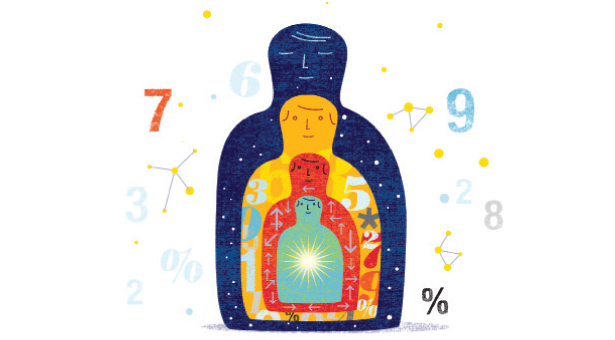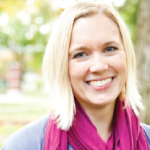Grace Note Reflections on the Christian Life
Why I Hypothesize
Understanding God's World Through Science
By Cara Wall-Scheffler

My mother tells me I have always been interested in science — from dinosaur bones, to plant growth, to the amount of blood that flows through the human body. As important as these curiosities have been to me, the character trait of perseverance, carefully nurtured by both my parents, is the trait that helps my career as a scientist the most.
When I reflect on this trait, I often think of Jesus' parable of the persistent widow asking for justice from the unjust judge (Luke 18:1–8): When at first your answer is denied you, try again. As a scientist, I am prepared to ask, fail, and try again.
For me, science offers the tools to get my answers: Why are people shaped the way they are? What function does body shape perform? Why are some people tall and others small? Do specific body proportions help people walk with less energy or with less wear-and-tear on their joints? Does having long legs help people run?
"While many successful experiments continue to make me grateful for my good fortune, even those that are not successful help me understand the way God works a bit better."
Each experiment that allows me to search for the answer to one of these questions inevitably leads to four or five new, interrelated questions. Thus I use my persistence to keep working to understand each new emerging issue. The most fascinating part of science is the interaction between the pieces of data, but this also means that clarifying my goals and my variables becomes increasingly difficult the closer to a solution I become.
It seems to me that I have been extremely lucky, and have only rarely found my hypotheses to be false — an unusual experience among scientists. I have even had the experience of pushing a paradigm aside to usher in a new way of understanding human gait. While many successful experiments continue to make me grateful for my good fortune, even those that are not successful help me understand the way God works a bit better.
I have consistently been drawn to the idea that multiple routes exist to Truth. While I spend time thinking about what the Bible tells us about God, and what the creeds teach us, I am further excited about what my research reveals. I persist in the search for these answers because I believe that God has created a world that can be understood, a world that contains logic as well as freedom. My null hypothesis is: God is not a trickster; there will be answers to my research questions. This is a satisfying place to be, even when the answer is not the one I was expecting or hypothesizing.
Since I am a professor, part of the excitement for me comes from sharing discoveries with my students. Their questions push me to take different approaches, to be creative in my explanations, and to find physical ways of helping them relate theory to something tangible in their environment — such as acting out the way that proteins interact when a muscle is contracting. Often their excitement in learning something for the first time reminds me of the joys of discovery and gives me a new perspective — and many new questions to consider. My students want to be able to see God's nature at work in the human body's incredibly intricate mechanisms, from feedback loops in the brain that integrate multiple mechanisms of thermoregulation, to the small changes in energy intake that have large impacts on survival.
Part of my goal is to involve students in research so they can make their own new discoveries. Many of our conversations revolve around why God uses "natural" mechanisms to create God's will or why we have to determine these mechanisms ourselves, instead of being fed everything literally through other means.
When students are given the joy of discovering for themselves, they get a better handle on why God has left some of this joy to us. In this way, they use the tools God has give us, such as creativity and curiosity, which allows us the same joy that seems to delight God.

Cara Wall-Scheffler is an assistant professor of biology at Seattle Pacifc University.
